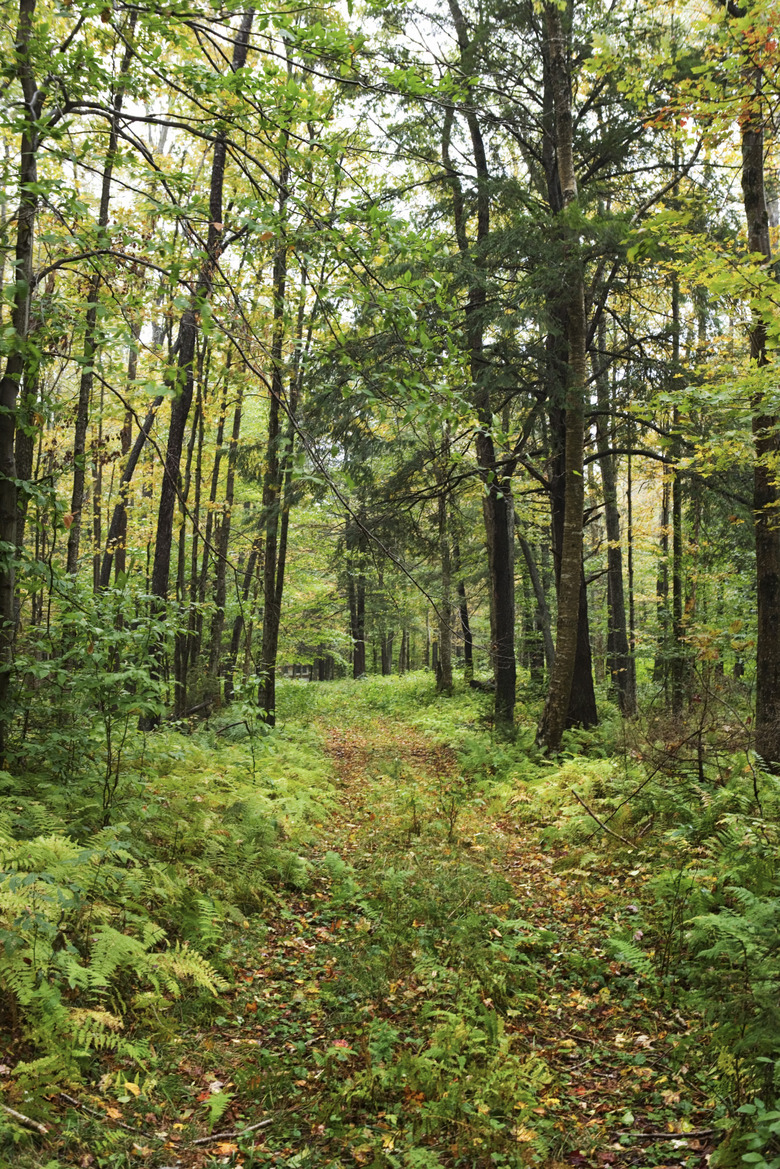How Does Deforestation Affect The Weather?
Deforestation, the depletion of forests and other wild flora in woodlands, has significant effects on the weather. These range from local distortions to contributions to global climate change. Deforestation removes the ability of the forest to sequester carbon, absorb sunlight, process water and block the wind.
Carbon Dioxide
Carbon Dioxide
All plant life absorbs carbon dioxide and releases oxygen as part of natural metabolic processes. Forests are no exception, and the trees and other plant life in a forest can take in and store carbon dioxide, a process called carbon sequestration. Deforestation both releases carbon dioxide from the plants that are cut down and removes the ability of the forest to sequester carbon. The U.S. Forest Service estimates that forests offset 16 percent of American carbon emissions.
Sunlight Reflection
Sunlight Reflection
The Earth's surface reflects and absorbs different proportions of the sunlight it receives, depending on the material. Forests absorb more sunlight than do plains. Sunlight that is not absorbed is reflected back into the atmosphere. Deforestation causes land to reflect more sunlight, altering the air currents above and increasing the variance of local temperatures, which become more sensitive to changes in sunlight. In the higher latitudes, deforestation may actually lead to surface cooling, as removing forests exposes the highly reflective snow beneath to the sun.
Evapotranspiration Cycles
Evapotranspiration Cycles
Plant life draws water from water in the soil. This water travels up the roots and stem to the leaves, where it evaporates through the stoma. This process is called evapotranspiration — plants transmit groundwater into the atmosphere, bringing moisture to the local environment. Deforestation ends this process, leaving the groundwater locked in the soil and cutting off the source of air moisture. The net result is that the local environment becomes dryer.
Wind Effects
Wind Effects
Forests act as barriers that slow down wind movements, due to the friction between the moving air and the forest's multiple layers of plant life. At the same time, the wind passing through a forest carries away the warm, moist air to other parts of the globe. Deforestation removes the ability of forests to act as a barrier for the wind, leading to higher local wind speeds and cutting off the circulation of warmth and moisture.
Cite This Article
MLA
Gellert, Andrew. "How Does Deforestation Affect The Weather?" sciencing.com, https://www.sciencing.com/deforestation-affect-weather-23869/. 24 April 2017.
APA
Gellert, Andrew. (2017, April 24). How Does Deforestation Affect The Weather?. sciencing.com. Retrieved from https://www.sciencing.com/deforestation-affect-weather-23869/
Chicago
Gellert, Andrew. How Does Deforestation Affect The Weather? last modified March 24, 2022. https://www.sciencing.com/deforestation-affect-weather-23869/
